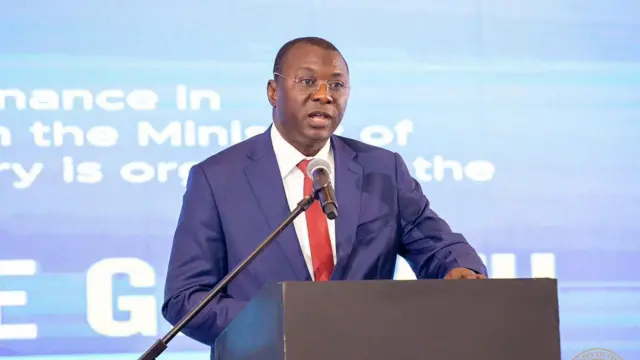The International Monetary Fund (IMF) has warned Ghana that the economic progress achieved under the Extended Credit Facility (ECF) programme requires continued, focused efforts to sustain and strengthen.
The warning comes as Ghana implements critical reforms to restore macroeconomic stability and address persistent fiscal challenges.
While acknowledging some progress in stabilising the economy, the IMF highlighted that these gains are vulnerable to external shocks, delays in policy implementation, and unresolved structural weaknesses.
The Fund emphasised the need for fiscal discipline, improved revenue mobilisation, and timely reform execution to ensure a durable recovery.
In its report, the IMF noted:
Maintaining a tight monetary policy is essential to further reducing inflation and rebuilding international reserves.
Addressing financial sector legacy issues and advancing financial system recapitalisation remain priorities.
Protecting vulnerable populations from the impacts of reforms is critical for fostering an inclusive recovery.
The IMF also raised concerns about delays in securing key funding, particularly from donor programmes like the World Bank, which could undermine fiscal stabilisation efforts.
Parliamentary gridlock and political tensions linked to the December 7, 2024, general elections have further stalled necessary reforms.
The ECF-backed reform programme hinges on timely disbursement of funds and strict adherence to policy measures to address debt vulnerabilities and bolster economic resilience.
The IMF urged the government to stay committed to its reform agenda, warning that deviations could reverse the progress made so far.
“Strong collaboration among policymakers, Parliament, and stakeholders is crucial to the programme’s success, ensuring sustainable growth and long-term stability,” the IMF stated.
The report also noted that leading presidential contenders have outlined priorities consistent with the ECF programme, focusing on reducing debt risks, boosting employment, and addressing the high cost of living.
The IMF stressed that the successful implementation of these objectives is vital for Ghana’s economic future.



